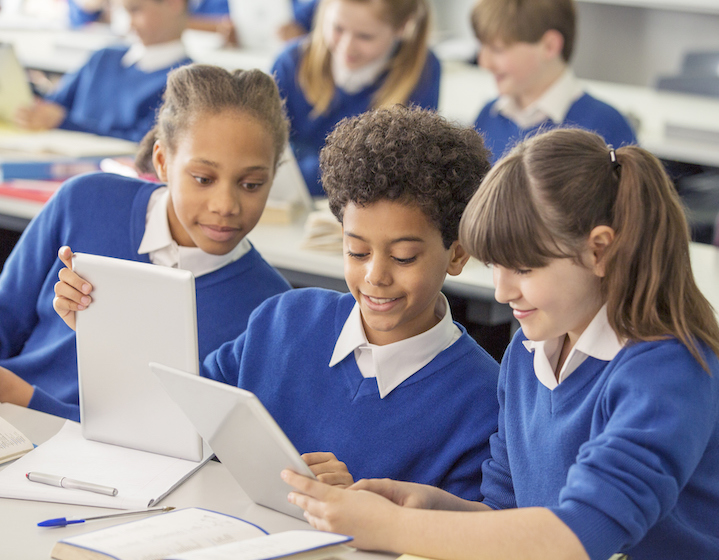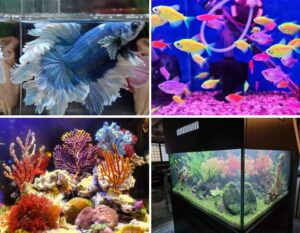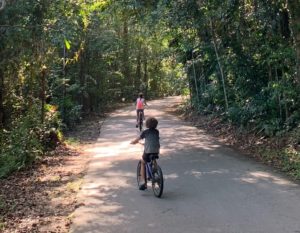
Some call it a cheating tool since kids are using ChatGPT to do their homework for them. Others say it will revolutionise how students learn and can be a useful time-saving tool. What exactly is ChatGPT and why should parents and schools in Singapore have it on their radar?
It can write an essay in seconds. Artificial intelligence ChatGPT launched in November last year and is currently open to the public free of charge due to it being in its research and feedback-collection phase. So what’s the big deal and how exactly does it work? And when you say ChatGPT can generate an essay answer in seconds, how good is it actually?
What exactly is ChatGPT?
Have you ever wanted to have a conversation with a computer program that feels like talking to a real person? ChatGPT, the artificial intelligence language model developed by OpenAI, can hold eerily realistic human-like conversations online on a wide range of topics. ChatGPT is trained with a vast amount of text data, so it can generate text that sounds like it was written by a real person. It can answer questions and write essays that are pretty convincing (this is why some schools around the world are banning it), provide information, tell jokes, write poetry, articles and stories!
One of the unique features of ChatGPT is its ability to continue a conversation based on the context of previous exchanges. This makes it possible to have a flowing conversation, much like chatting with a friend. So you can ask it to refine a piece of work it has generated, make it rhyme, add in extra pieces of information, make it shorter, etc. How good is it, you wonder? Recently a professor at Wharton, University of Pennsylvania’s business school, used ChatGPT to take an MBA exam and not only did it pass, it scored a B to B-. Yup, crazy right?
So, what’s the catch?
ChatGPT is not flawless. OpenAI, the ChatGPT creators themselves state, ‘ChatGPT sometimes writes plausible-sounding but incorrect or nonsensical answers’. ChatGPT doesn’t actually know anything. It’s an AI that’s trained to recognize patterns in vast swaths of text online which it then regurgitates. So it does not (yet) have the ability to produce an original concept. ChatGPT can also currently only draw on data prior to 2021 so it has no knowledge of current events.
Here’s a look at why ChatGPT is important to have on your radar and what to know about how schools in Singapore are working with it.
Will ChatGPT help students cheat better?

We asked a handful of schools in Singapore what their thoughts were on ChatGPT – would they be banning it like some schools in the USA or universities in France? Or could schools actually incorporate this new technology into their lesson plans? Only a few schools were ready to comment on this new and exciting AI:
What are your thoughts on ChatGPT – will you be banning it or incorporating it into lessons?
“UWCSEA will not be banning ChatGPT, nor will we necessarily be incorporating it into lessons. In order to open an account with OpenAI (and therefore use ChatGPT) you have to be 18 years old, which the vast majority of our students are not. However, the general rise of AI is something which cannot be ignored by the education industry, and students should be taught how to interact with AI and use it in meaningful, effective, ethical and responsible ways.” Tim Lovatt, Head of Digital Learning, UWCSEA Dover
“There is nothing inherently wrong with chatbots, but they can be used to deceive. Our approach is to educate. Chatbots aren’t going away. There is an opportunity here to create great discussions on ethics and integrity. There is also an opportunity to explore the many excellent and positive uses for such technology. Responsible use of technology is one of the pillars of our IT strategy. I’d rather get to a position of responsible and appropriate use. Banning or blocking ChatGPT in school would simply push potential problems to one side.” Richard Dyer, Principal, Dovercourt International School
Can ChatGPT and other AI tools be used effectively to help teach and deepen kids’ learning, and if so, how?
“There is great potential here. Generating essays on a topic for students to critique, edit and refine is one simple use. Creating one side of a live debate on a topic for students to interact with and refine their debating skills is another. ChatGPT can be a useful research tool.” Richard Dyer, Principal, Dovercourt International School
“ChatGPT is the first of what will be many iterations and forms of publically available AI. The technology will continue to improve and, perhaps even more importantly in this context, users will continue to invent novel ways to use it. Even at this exploration stage, ChatGPT can and has been used to augment and deepen teaching and learning. Examples include enabling teachers to create differentiated resources quickly that cater to specific student needs, create mentor texts, create sample exam responses for critique, create worksheets with answers and worked responses, build lesson plans, create flashcards, make gap-fill exercises, create rubrics, inform and link real-world events to learning…the list goes on. The key thing is that these things would take teachers hours to do from scratch, but ChatGPT can do it in seconds, and then the teacher makes some edits and corrections. The potential for time-saving is enormous. If this tech can save teachers loads of time, why shouldn’t it be used to save students time too? There is a reasonably well-documented mental health and anxiety increase in teenagers. Tools like ChatGPT, if used properly, have the potential to lighten everyone’s workload and free them up to do more of the things that matter to them.” Tim Lovatt, Head of Digital Learning, UWCSEA Dover
Will teachers at your school be using ChatGPT for lesson plans or marking students’ work?
“ChatGPT provides a good starting point for lesson or activity planning. It takes a critical eye and pedagogical expertise to form these ideas into a coherent and effective learning plan for a specific class, but yes, this is a possibility, along with all the hundreds of other tools that can be used for this.” Tim Lovatt, Head of Digital Learning, UWCSEA Dover.
“Certainly not for marking. A teacher assessing a student’s work is a form of interaction with the student and is central to planning the learning. Lesson planning is a possibility. Teachers don’t plan sequences of learning from scratch and already draw upon a wide range of resources. ChatGPT is another resource.” Richard Dyer, Principal, Dovercourt International School
What measures, if any, can be taken to check if kids are using ChatGPT or other ‘cheating tools’?
“From a technology perspective, there are ways being developed that mean it is possible to identify writing from an AI source. There has been an app called GPTZero developed that uses the AI against itself to identify AI-driven writing. Popular plagiarism detection product turnitin has also begun to develop detection capabilities. Ultimately, teachers should know their students and I think here at DCIS this is where we excel. A student’s style of writing, their ability to synthesise information, to write succinctly or use appropriate language, to create a balanced argument with appropriate opposing viewpoints, and other elements are all things that their teacher should know and therefore be able to recognise if they’ve been improved in some way that is out of the ordinary for that learner. There is a bigger conversation that could be had about whether it is deemed worthy of being called a ‘cheating tool.’ Are things like spell check, Grammarly, or a calculator also ‘cheating tools’? If we refer to it as a ‘cheating tool’, we might immediately begin to give a negative connotation to something that ultimately isn’t negative.” Dan Franklin, Whole School Deputy Head, Educational Technology, Dovercourt International School
“ChatGPT is not a cheating tool. There is no such thing as a cheating tool. Cheating occurs in the intent of the individual. Textbooks have, for decades, had “all the answers” but nobody has ever called these a cheating tool. ChatGPT is a learning tool. It offers us a new kind of opportunity for students to learn critical thinking, evaluation of outputs, so-called ‘prompt-engineering’ – the art of asking the right questions, the importance of ethics and transparency of sources and many other things. There are tools which can decipher if something was likely written by a chatbot, and these will prove useful in some instances. But the main “measures” that should be taken to ensure responsible and ethical use are the educational aspects. Teach students the value, limitations and potential bases that AI tools like ChatGPT might have. Empower them to use it ethically through education, encouragement, support and scaffolds. Just like we try to do with anything else. “Tim Lovatt, Head of Digital Learning, UWCSEA Dover
Has ChatGPT changed how kids are learning or being assessed at your school?
“In my opinion, ChatGPT will significantly affect global assessment practices, and these changes are in some cases long overdue. Any learning and assessment should be about the contextual transfer, creative application and critical evaluation of knowledge and understanding. The idea of being assessed on memorised facts is antiquated, and I am optimistic that ChatGPT will be another factor that contributes to the end of this kind of assessment. As a college, our mission and values, and our concept-based curriculum is such that we teach and assess in this way already at any possible point, but the world is moving in this way, rightfully so, and ChatGPT will help this.” Tim Lovatt, Head of Digital Learning, UWCSEA Dover
“The advent of ChatGTP and the many other AI driven programs that are out there provide a great opportunity to discuss ethical use and ethical implications of using such tools. Whether it is a good thing or a bad thing we will see in due time. However, it is here to stay and we must be looking at ways to utilise these tools whilst also keeping a critical eye on them, and promoting this to our students too.” Dan Franklin, Whole School Deputy Head, DCIS
So mums and dads, if you need to see it to believe it, you can try ChatGPT out yourself now by visiting chat.openai.com and creating an OpenAI account.
What do you think – do you wish this technology was around when we were growing up or not?






 View All
View All





 View All
View All









 View All
View All





![[𝗦𝗔𝗩𝗘 𝗧𝗛𝗜𝗦] 𝗞𝗶𝗱-𝗔𝗽𝗽𝗿𝗼𝘃𝗲𝗱 𝗗𝗲𝘀𝘀𝗲𝗿𝘁 𝗦𝗽𝗼𝘁𝘀 𝗬𝗼𝘂 𝗖𝗮𝗻 ‘𝗘𝗮𝘁 𝗳𝗼𝗿 𝗙𝗿𝗲𝗲’ 𝗪𝗶𝘁𝗵 𝗖𝗗𝗖 𝗩𝗼𝘂𝗰𝗵𝗲𝗿𝘀! 🍦🍩🧁😉
Before you ask “Can use CDC voucher?” Yes, you definitely can! These spots are perfect for an after-school treat, weekend fun, or just saying “yes” to dessert without saying goodbye to your wallet.
Comment “Sweet” or tap the link in bio for more foodie recommendations!
Got a fave kid-friendly spot that accepts CDC vouchers? Let us know in the comments too!
.
.
.
.
.
.
.
#CDCVouchersSG #SGMumLife #KidFriendlySG #FreeDessert #HeartlandEats #SweetTreatsSG #SGParents #FamilyFunSG #WafflesAndIceCream #BudgetParenting #ThingsToDoWithKidsSG #SGCafes #SupportLocalSG #KidsEatHappy #CDCAdventures](https://www.sassymamasg.com/wp-content/plugins/instagram-feed/img/placeholder.png)
